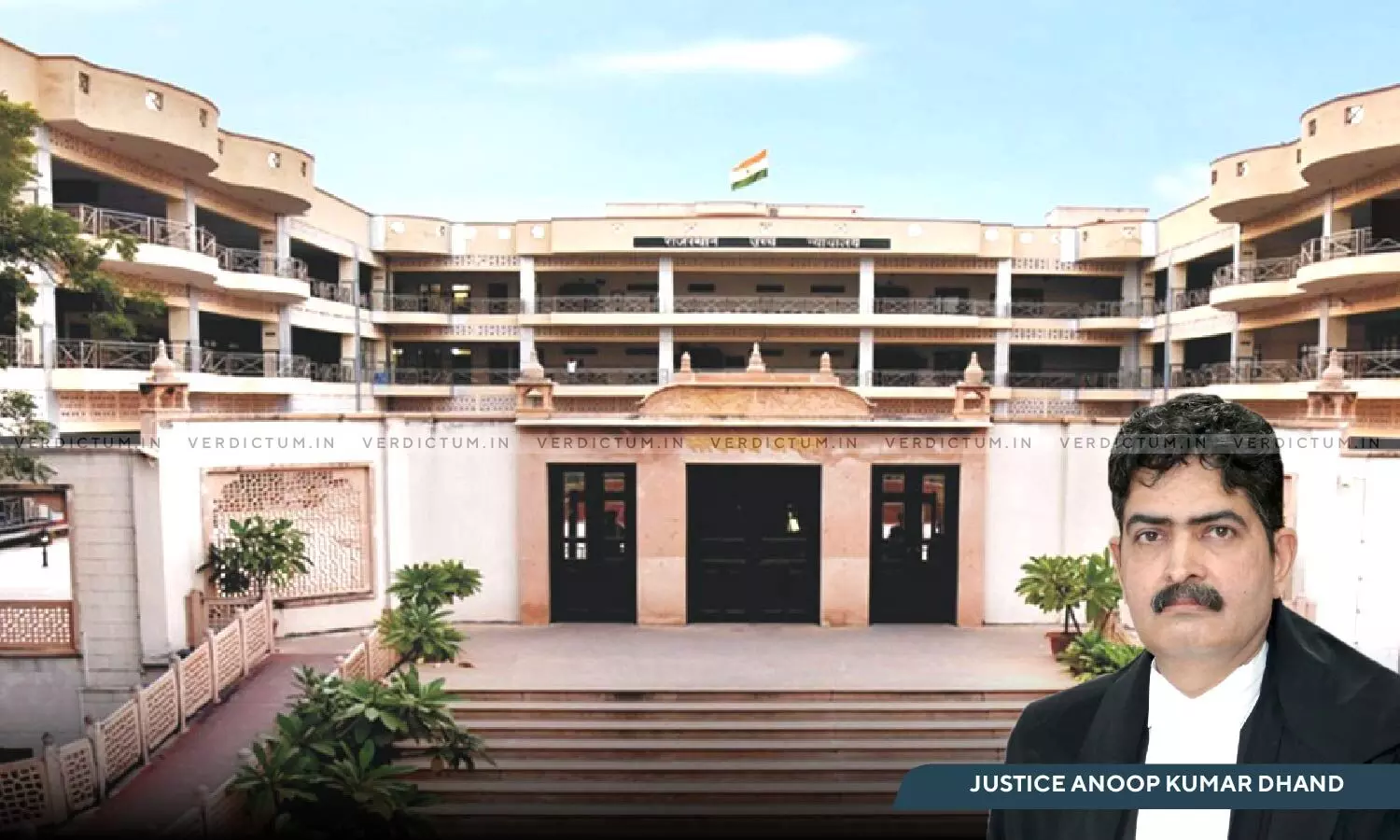
Justice Anoop Kumar Dhand, Rajasthan High Court
Establish “Administrative Judicial Academy” To Train Officers Of Administrative Services: Rajasthan High Court To State Govt.
 |
|In the writ petition before the Rajasthan High Court, a challenge was laid to the impugned order by which a suit for partition and permanent injunction was decreed without framing the issues.
Taking note of the obstination exhibited by the Revenue Courts in often overlooking and bypassing the procedure laid down for deciding the suit, the Rajasthan High Court has passed directions for the establishment of Administrative Judicial Academy for organizing mandatory training programs for the newly appointed and in-service Administrative Officers.
In the writ petition before the High Court, a challenge was laid to the impugned order passed by the Sub Divisional Officer, Mahwa, District Dausa (SDO) by which a suit for partition and permanent injunction filed by the plaintiff-respondent, Om Prakash (plaintiff) was decreed without framing the issues and also without recording the evidence of both sides.
Considering the fact that the training course for the Officers of Administrative Services is imperative to improve their efficiency, the Single Bench of Justice Anoop Kumar Dhand said, “Hence, it is the high time and right time to establish an “Administrative Judicial Academy” for such Officers of Administrative Services. The need to impart training to such Officers, both ‘pre-service’ and ‘in-service’, has been felt for a long time and has been neglected by the Government of Rajasthan so far, having disastrous consequences to development of State and justice to public at large.”
“Officers must be trained in framing issues, recording evidence presented by the litigating parties, and drafting judgments at both trial and appellate levels. They should also imparted training for enhancing the art of writing interlocutory orders. They should be familiarized with the various stages of a suit and the procedures outlined in the CPC”, it added.
Advocate Hari Krishna Sharma represented the Petitioner while Advocate Devendra Kumar Sharma represented the Respondents.
Reasoning
On a perusal of the facts of the case, the Bench found that the opportunity of filing a written statement by the remaining defendants was closed and on the very same day, without framing the issues and without recording the evidence of either side, the suit filed by the plaintiff was decreed by the Trial Court.
The Bench explained that Order XIV of C.P.C. deals with the settlement of issues and determination of the suit on issues of law or issues agreed upon. The provisions in this Order enable the court and the parties to settle down to know the matters in controversy, put them in a proper form, fix the burden on the parties to prove on particular issues, then allow them to lead the evidence and thereafter decide the matter after trial, leading to the judgment.
The Bench further held that the court is bound to frame issues based on the pleadings. Rule 3 of Order XIV of C.P.C. gives a guideline as to the materials from which, issues may be framed namely- allegations made on oath by the parties, or by any persons present on their behalf, or made by the pleaders of such parties; allegations made in the pleadings or answers to interrogatories delivered in the suit; the contents of documents produced by either party.
“Perusal of the provisions provided under Order 14 CPC clearly indicate that whenever pleadings are disputed by the either side, it is the bounden duty of the Court to frame issues for determination of the dispute based on the pleadings made by the parties to the suit and thereafter, the burden is required to be allocated on the party, whosoever is disputing the material fact or the provisions of law ”, the Bench said while also adding, “...as per Rule 7 of the Order 14, the Court would pronounce the judgment on all the issues but here in the instant case, the aforesaid provisions have been flouted by the Trial Court. It is quite shocking and surprising that in the instant case, neither the issues were framed nor the evidence of either side was recorded and straightway, the impugned order has been passed decreeing the suit filed by the plaintiff.”
Thus, allowing the Petition, the Bench quashed the impugned order passed by the SDO and remitted the matter to the Trial Court for disposal of the suit afresh after following the mandate contained under Order 14 CPC i.e. after framing the issues and recording the evidence of the parties and thereafter, adjudicating the dispute on merits after affording opportunity of hearing to both sides.
The Bench thus passed the following directions:
- Establish an Administrative Judicial Academy for organizing mandatory training program for the newly appointed and in-service Administrative Officers.
- Conducting research on judicial reforms, for management and access to justice.
- Promoting judicial innovation through seminars, colloquia, and workshops.
- Develop a comprehensive curriculum that blends theory with practical training of procedural laws, including framing of issues, recording of evidence, writing judgments, mediation and the use of technology in Courts.
- Sensitizing the Officers to take every possible step for expeditious disposal of the matters, without granting unnecessary and unwarranted adjournments and making all possible endeavors for speedy disposal of the cases.
Cause Title: Umakant Sharma v. Om Prakash Sharma & Ors. (Case No.: S.B. Civil Writ Petition No. 840/2025)
Appearance:
Petitioner: Advocate Hari Krishna Sharma
Respondent: Advocate Devendra Kumar Sharma